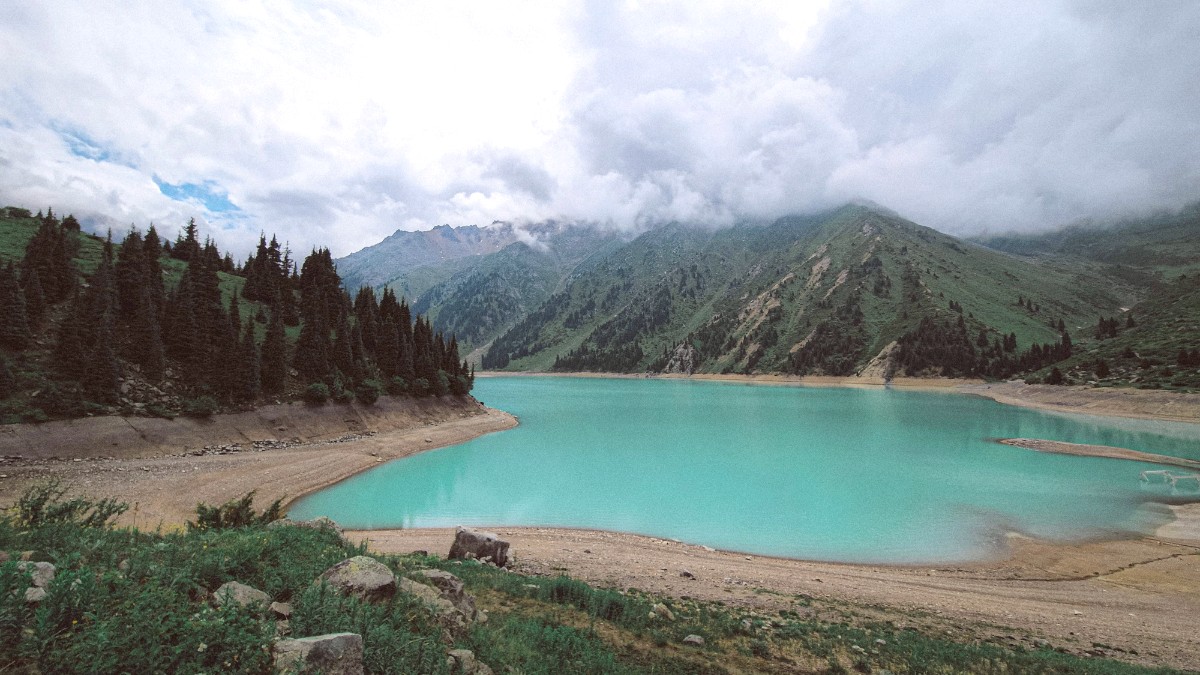
Kazakhstan
Kazakh cuisine is traditionally nomadic, using a lot of meat (especially horse, lamb, beef) and dairy products. It prefers hearty, protein-rich dishes suitable for a pastoral lifestyle. Russian, Uzbek, Uighur, and Dungan cuisine influences appear due to historical connections and ethnic diversity.
It uses spices relatively mildly, focusing on the natural flavors of ingredients. Dill, parsley, and black pepper are common.
Horsemeat (Kazy, Shuzhuk), lamb, and beef are common. Dishes often use boiled or stewed meat.
Kurt (dried salty cheese balls), Ayran (yogurt drink), and Kumys (fermented mare's milk) are traditional dairy products.
Noodles (Beshbarmak), rice (Pilaf), and various breads (Baursak, Lepyoshka) form staples. Onions, carrots, and potatoes appear, but meat is the main focus.
The national dish. It features boiled horse meat or lamb (sometimes beef) served over square-cut noodles, usually with onions and broth. Eat this by hand.
A truly authentic experience!
Traditional horsemeat sausage, often served boiled or smoked as an appetizer.
A local delicacy!
A rice dish cooked with meat (lamb, beef), carrots, and spices, often prepared in a large Kazan (cauldron). Popular throughout Central Asia.
A comforting Central Asian staple!
Kumys (Koumiss): Fermented mare's milk, slightly alcoholic, sour, and fizzy. Shubat: Fermented camel's milk. Ayran: A salty yogurt drink. Black Tea (Chai): Consumed throughout the day. Vodka: A popular alcoholic beverage.
Baursak: Fried dough balls, often served with tea or honey. Kurt: Salty, dried cheese balls.
Find numerous upscale restaurants, often in luxury hotels. They serve Kazakh, European, and Asian fusion cuisine.
Many options provide a mix of Kazakh, Central Asian (Uzbek, Uighur, Dungan), Russian, European, and Asian cuisines. These offer good quality and value.
Stolovaya (canteen) offers inexpensive fare. The Green Bazaar has food stalls with Samsa, Lagman, and Shashlyk. Food courts are in shopping malls. Street vendors sell shawarma and corn.
This bustling central market has fresh produce, dried fruits, spices, dairy products, and ready-to-eat food stalls.
A true sensory experience.
Almaty features a wide array of international restaurants, including Italian, Japanese, Chinese, Indian, Georgian, Turkish, and more.
Many global flavors await.
Can be challenging; look for international restaurants or vegetable-based dishes.
Most meat in traditional Kazakh restaurants is implicitly halal.
Awareness is developing. Carry translation cards.
Use translation apps or pre-written cards for dietary needs.
Most meat served in traditional Kazakh and Central Asian restaurants is implicitly halal, since Kazakhstan's population is largely Muslim.
Explicit halal certification may not always be displayed.
Kosher food is very limited. A small Jewish community exists, and you might find a synagogue or specialty shop with some items.
Special arrangements may be needed.
Sticking to simple, naturally gluten-free dishes like grilled meat, rice, and certain soups works best for gluten sensitivities.
Researching specific restaurants online that cater to dietary needs before visiting is highly recommended for a smoother dining experience.
Several local tour operators conduct cooking classes focusing on Kazakh or Central Asian cuisine (e.g., Lagman, Manty, Beshbarmak).
Food tours explore the Green Bazaar and various ethnic eateries, letting you sample local flavors and specialties.
Limited formal options exist near Almaty, but some rural excursions might include visits to small farms or apiaries.
Many staple Kazakh dishes are available throughout the year in restaurants and markets.
Core dishes are always on the menu.
Specific dishes might be prepared for holidays like Nauryz (spring equinox), but these are generally special occasion foods.
Look for special menus during festive periods.
Food is a cornerstone of Kazakh hospitality and history, allowing a deep dive into local traditions.
Almaty's multicultural population translates to a wide array of Central Asian and international dishes.
From budget-friendly street food to mid-range restaurants, quality dining options are available for every budget.
Exploring Almaty's food scene goes beyond just eating; it is an adventure into cultural discovery.